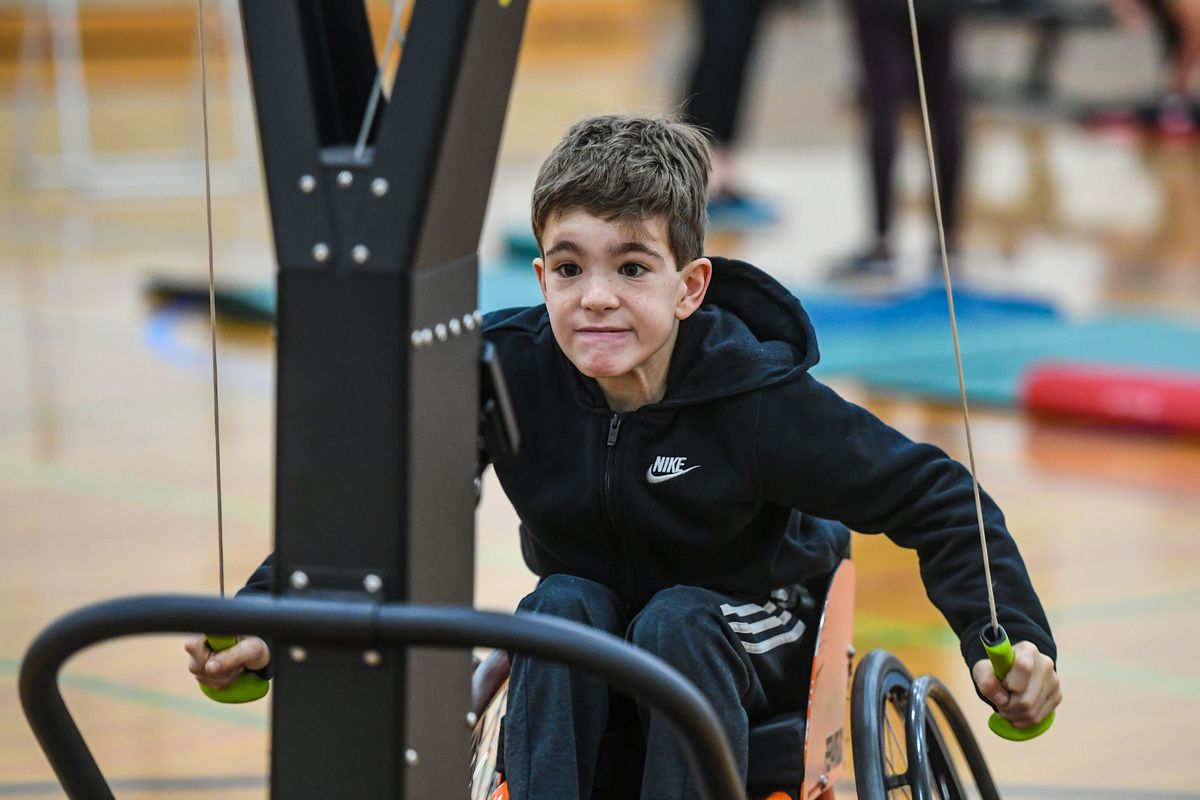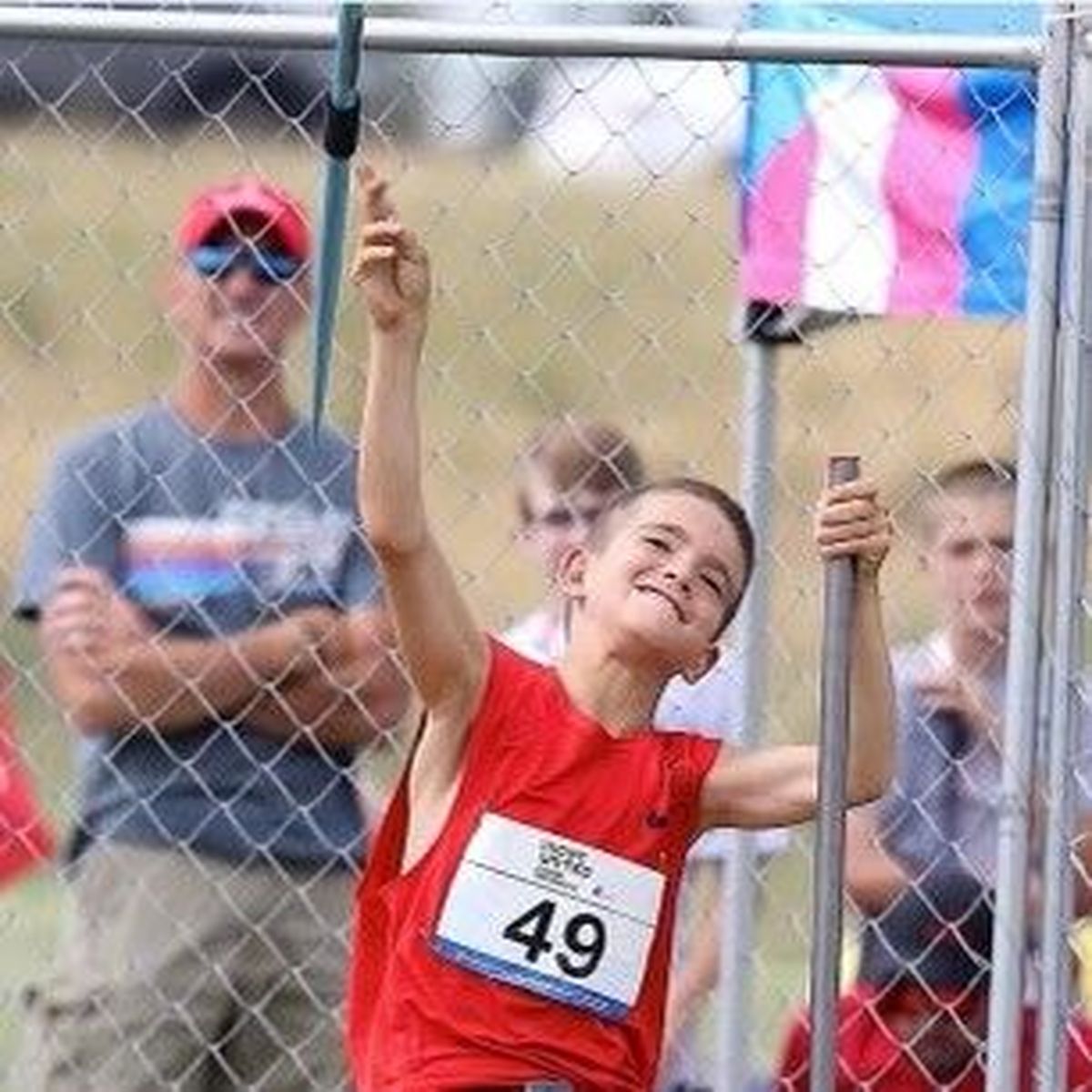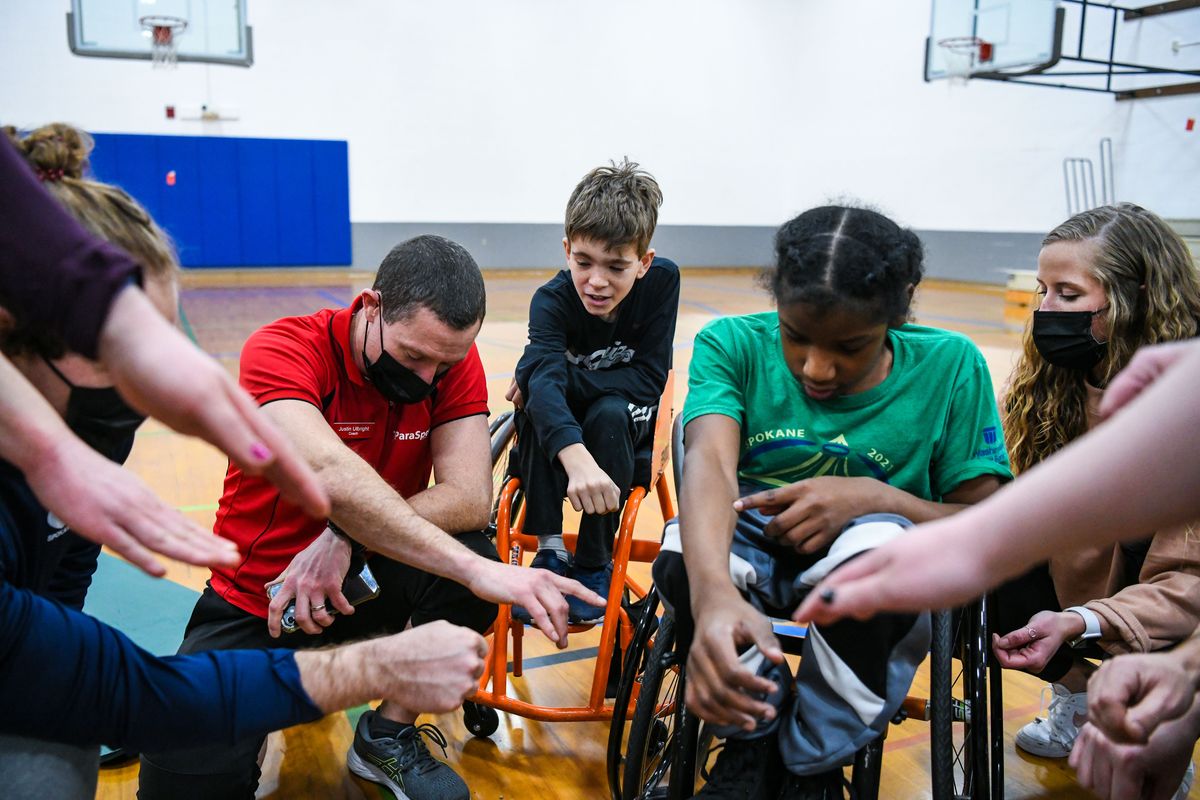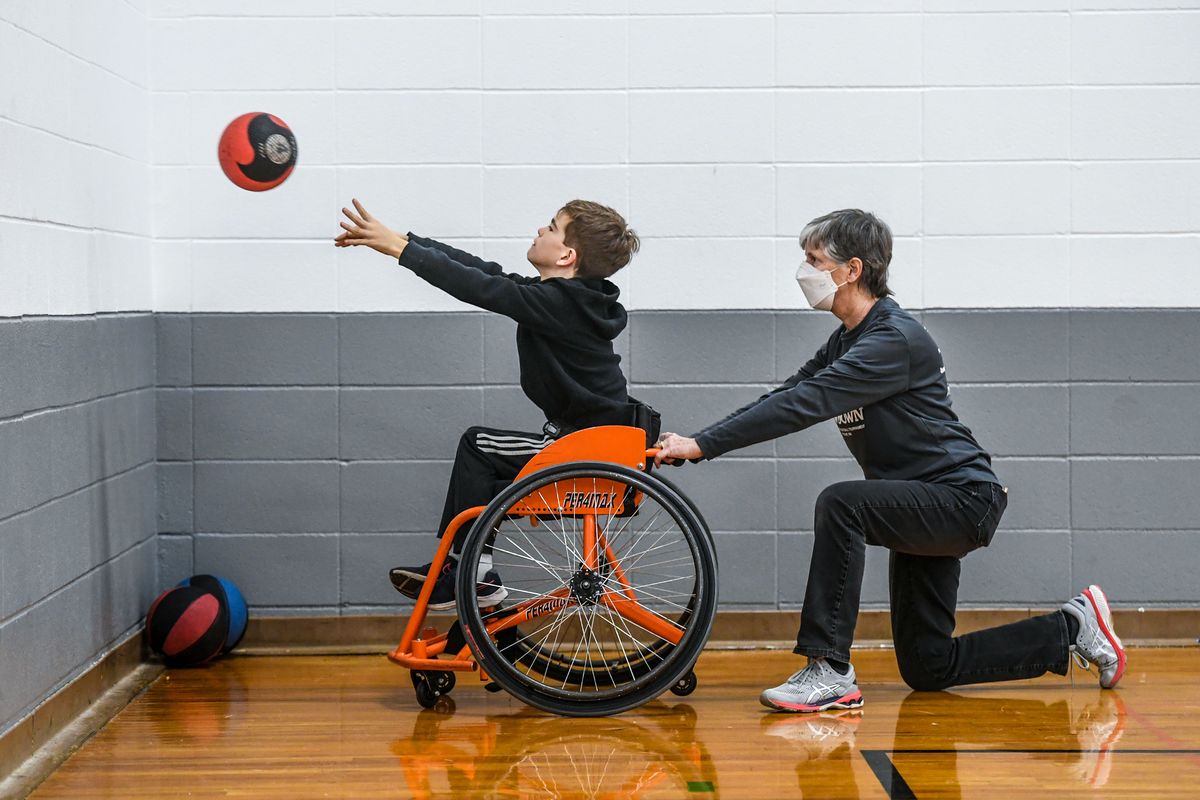‘We are so amazed and proud’: Spokane child, 11, with cerebral palsy excels in sports after surgery and therapy
Jack Coy, 11, born with mild cerebral palsy, works on a SkiERG machine during a ParaSport strength and conditioning session Feb. 8 at Valley Christian High School in Spokane. (Dan Pelle/The Spokesman-Review)Buy a print of this photo
Like many Spokane children, Jack Coy enjoys participating in sports. He has set a record, worked hard and landed another goal – recovery and strength – after an elective surgery just over a year ago and longtime intensive physical therapy.
Born premature at 29 weeks and with mild cerebral palsy, Jack, 11, previously struggled to walk because in his body, the condition resulted in tight leg muscles, poor endurance and balance issues.
After a referral to Seattle Children’s Tone Management Program, Jack had what’s called dorsal rhizotomy surgery in January 2021. The procedure is done on the lower spinal cord to reduce spasticity, or high muscle tone, in the legs. Certain abnormal nerve fibers that cause the high muscle tone are cut.
Afterward, he and his muscles had to learn to move anew, said his mother, Stephanie Coy. He stayed in the hospital for nearly a month to undergo intensive rehabilitation, then did up to five days a week of physical therapy in Spokane until recently.
“It’s a very intimidating surgery name,” Coy said. “For kiddos who have cerebral palsy, they have nerves that react too strongly, and that’s what is causing that really tight tone in their muscles. And if they find nerves that are reacting too strongly, they cut them.
“If I remember correctly, they told me prior to the surgery that it’s about a one-year recovery.”
Jack Coy, 11, born with mild cerebral palsy, works with coach volunteer Shirley Carlson during a ParaSport strength and conditioning session Feb. 8 at Valley Christian High School in Spokane. (Dan Pelle/The Spokesman-Review)Buy a print of this photo
Only a few U.S. hospitals do this type of surgery, she said. The family researched options, and although referred to Seattle Children’s, “that was the place we ended up wanting to do the surgery, which worked out really well.”
She said Jack was “super weak” post-surgery, as the body adjusts. “Jack couldn’t even roll over on his own. That intensive therapy after the surgery is to get him up and moving and get the muscles and brain to start working together and trained up to do what they were really meant to do.”
Early goals were to get him walking well enough with a walker and transitioning between positions before going home. Back in Spokane, that walker didn’t last long as a kid who wanted to move, his mom said.
“Then, it was slow-going with the walking and getting back to running and bicycle riding and the normal activities a kid would want to do, but he got back to it pretty quickly with the help of all his therapists and his sports,” she said. “What we have been really focusing on through the length of the year is his endurance and core strength.”
The biggest challenge that remains are stairs, particularly if there’s no railing, she said. But Jack thrives today in ParaSport Spokane sled hockey and wheelchair basketball. In July, he set a national record in javelin throwing at the Move United Junior Nationals in Eden Prairie, Minnesota.
“For him, it’s from a seated position; he’s strapped in, and you don’t get your whole body to be able to throw a javelin or shot put, so it’s a very challenging event. We were so amazed and proud that he did so well in that event.”
Today, Jack also walks with greater strength, endurance and balance. He mostly goes to places without using a wheelchair unless he’s joining his family for long excursions, Coy said. Jack has a twin brother, Jeff, also born premature but who doesn’t have cerebral palsy.
Until recently, Jack’s physical therapy sessions in Spokane were about four to five days a week, about 45 minutes each, at both Youthful Horizons Therapy and Providence St. Luke’s Rehabilitation Medical Center. Now, he’s now down to about one session a week.
“He also did a lot of strength and conditioning through ParaSport Spokane,” Coy said. ParaSport Spokane provides training, recreational and competitive opportunities for youth and adults with physical disabilities that promote success, self-worth and independence. “They have tons of therapists on staff, so we got every single resource we possibly could to get him going.”
Between strength and conditioning and sports activities, he’s active with the organization about three times a week. Jack started with ParaSport Spokane at age 3. He also just took up snowboarding lessons through Spokane Parks and Recreation.
Being on teams and in competitions helped motivate Jack to keep going to his physical therapy, Coy said.
“Therapy can get old and frustrating, but when you put it with sports and competition with coaches and therapists in a sports program, it’s so motivating,” Coy said. “That has been a constant throughout his whole recovery, where sometimes it’s a struggle to get him to therapy.”
Deciding to have their son undergo the elective surgery took a bit of faith for her and her husband, she said. It’s since proven to have worked well for this stage in his life.
“When we went to Seattle the first time, a couple of years earlier, he was not a good candidate for the surgery,” Coy said. “But he was growing taller, so his muscles were getting tighter because they don’t want to grow with the bones. As they were getting stretched and becoming more taut, he became a stronger candidate for the surgery.”
The tone management program’s team does a surgical evaluation prior to a procedure – a vetting process – on whether a child could benefit, she said. Jack did sports before the surgery and was good at them, but now, he likely can continue them longer in life without as much difficulty, she said.
“His outcome, I think, was better than what was expected.” She credits both Seattle Children’s and Spokane’s therapists and coaches.
“Kiddos who have CP have bodies that want to grow and stretch out just like everyone else, but their spasticity and tone can be too tight. As a result, bones have to start bending or growing in unnatural ways to accommodate the tightness in their bodies. This can lead to a lot of pain and orthopedic surgeries later on in life.
“The hope with the dorsal rhizotomy is to act preventatively. By releasing that tone, growth can become more natural in pattern and less painful in later years.”








